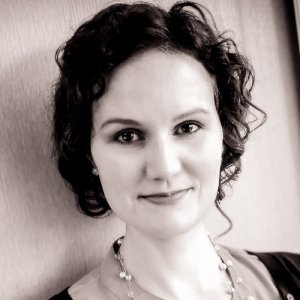
The Jewish and Islamic legal traditions provide diverse, nuanced opinions on the legality and morality of abortion. Despite the historical contexts of these opinions, they remain salient to the current legal debate in the United States. The range of opinions includes strict limitations on abortion, circumstantial legality, and general permissibility. Scholars in both traditions debated the issue over extended periods of time (millennia in both instances), creating sophisticated bodies of jurisprudence on abortion.
Although scholars disagreed over the permissibility of abortion, they recognized the legitimacy of differing opinions. Comparatively, the American political and legal debates on abortion have little tolerance for diversity of opinion and have become increasingly polarized. In this presentation, Professor Benhalim will provide examples of sophisticated abortion jurisprudence from both traditions that recognize and accommodate a wide range of answers to the legal and ethical questions abortion presents.
About Rabea Benhalim:
Rabea Benhalim is an Associate Professor at the University of Colorado Law School. She specializes in comparative Jewish and Islamic law with a focus on (1) The development of Islamic and Jewish law in the modern era and (2) the application of Islamic law in commercial contexts. Within these areas, her current work investigates how secular environments affect interpretations and development of religious law, especially for minority religions. Her recent publications include Islamic Law, Sex, & Marriage Contracts, 108 MINN. L. REV. (2023) (forthcoming) and Oppression in Islamic, Jewish and American Private Law, 94 COLO. L. REV. 1 (2023). She teaches a variety of law courses including Contracts, Secured Transactions, Jewish Law, and Islamic Law.
Professor Benhalim's prior work experience as a lawyer and policy expert includes positions at the Brookings Institution, Mayer Brown LLP, Maersk Oil, and the Carter Center. She was the 2017-2019 William H. Hastie Fellow at the University of Wisconsin Law School. She holds a J.D. from the University of Texas, an L.L.M. from the University of Wisconsin Law School, a Master of Islamic Studies from the University of Texas, a Master of Public Policy Degree from the University of Michigan, and a B.A. from the University of Texas at Dallas.
Although scholars disagreed over the permissibility of abortion, they recognized the legitimacy of differing opinions. Comparatively, the American political and legal debates on abortion have little tolerance for diversity of opinion and have become increasingly polarized. In this presentation, Professor Benhalim will provide examples of sophisticated abortion jurisprudence from both traditions that recognize and accommodate a wide range of answers to the legal and ethical questions abortion presents.
About Rabea Benhalim:
Rabea Benhalim is an Associate Professor at the University of Colorado Law School. She specializes in comparative Jewish and Islamic law with a focus on (1) The development of Islamic and Jewish law in the modern era and (2) the application of Islamic law in commercial contexts. Within these areas, her current work investigates how secular environments affect interpretations and development of religious law, especially for minority religions. Her recent publications include Islamic Law, Sex, & Marriage Contracts, 108 MINN. L. REV. (2023) (forthcoming) and Oppression in Islamic, Jewish and American Private Law, 94 COLO. L. REV. 1 (2023). She teaches a variety of law courses including Contracts, Secured Transactions, Jewish Law, and Islamic Law.
Professor Benhalim's prior work experience as a lawyer and policy expert includes positions at the Brookings Institution, Mayer Brown LLP, Maersk Oil, and the Carter Center. She was the 2017-2019 William H. Hastie Fellow at the University of Wisconsin Law School. She holds a J.D. from the University of Texas, an L.L.M. from the University of Wisconsin Law School, a Master of Islamic Studies from the University of Texas, a Master of Public Policy Degree from the University of Michigan, and a B.A. from the University of Texas at Dallas.